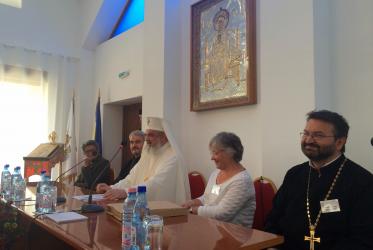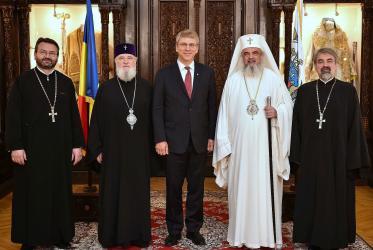Displaying 201 - 220 of 249
05 November 2015
WCC urges responsibility for and support to the refugees in Europe
04 September 2015
WCC encourages churches to pray on Hiroshima Day
06 August 2015
Religious leaders urge a ban on fully autonomous weapons
02 April 2015
WCC mourns the death of Leopoldo Niilus
10 February 2015









